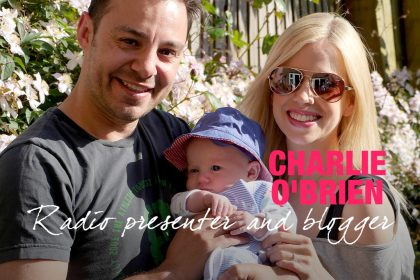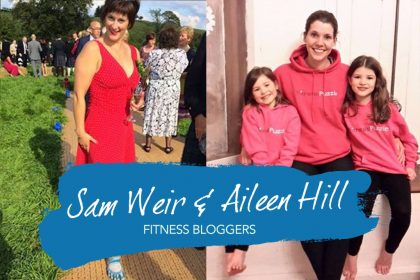How to write a blog people will want to read
Need to create content, but worried you don’t have anything to say? Discover how you can write a blog people will want to read.
It seems that every man (and sometimes even their dog) has a blog these days. A quick search online will reveal blogs about everything from food and fashion, to strange hobbies, personal experiences and professional advice.
Some blogs can take on a life of their own, attracting thousands of readers a month and earning their authors fame, opportunity, awards and even a decent income. Others however just limp sadly along, picking up a couple of readers (one of which is probably the author’s mum) and never earning them a penny.
What makes a blog popular?
So what’s the difference? What makes one blog popular and another, well, not? The answer isn’t simple. It’s partly luck (timing, who you know etc), partly hard work (writing regularly and building an audience) and partly tactics (building relationships with other bloggers and getting out on social media).
But a big part of making a blog successful is writing something other people actually want to read. It’s knowing who your audience is, and what subjects they’re keen to find out more about. It’s also about understanding the magic ingredients of a successful blog post. And if you don’t know what they are, don’t worry. We’re about to share them with you.
Need assistance coming up with ideas for content? Find out how you can use ChatGPT to help you write a blog.
Pick the right blog topic
When you first start writing a blog, you often pick your subjects by instinct and guess work. But once you’ve got into the swing of blog writing you soon start to get a much clearer idea of what topic is going to be a big hit, and which one will fail to make much of an impression.
You can work this out both by listening to people, and by looking at key data. There are several ways you can find this out:
- By checking your Google Analytics.
- By checking the number of comments.
- By checking the number of social media shares.
- By checking the number of links the post gets.
What content the post actually contains will depend on your audience, and the purpose of your blog – for example, do you want to educate, enlighten, amuse or motivate people?
Over time, we’ve learned what kind of content our readers want to see, and try to make sure we do more of that. Of course we still get it wrong sometimes. There have been articles we were sure would be a big success that haven’t made a ripple. And others we weren’t too excited about have been really big.
So there will always be surprises and mistakes – but if you analyse what information is available to you, and really understand your audience, you’ll start to get more hits than misses.
How to write an engaging blog title
Before someone reads a word of your carefully crafted blog, you’ll need to lure them in with an attention-grabbing headline. And the kind of headlines that make people stop, pay attention and read on, often begin with words like:
- How
- Why
- Where
- Find
- Discover
- Learn
(We talk more about what kind of headlines work and why in another article.)
We’ve also learned from writing Talented Ladies Club that a number of different angles are really popular:
- Lists are a great way to structure a blog – such as ‘Three things you need in your blog’.
- A headline with a negative slant gets more hits than a positive one – for example, ‘Three things you should never write about’ rather than ‘Three things you really should write about’.
- Imperatives attract attention – like ‘Three things you MUST remember when writing a blog’.
- Curiosity helps draw readers in – try ‘Three things you don’t know about writing a blog’.
Again, like your post topic, over time you’ll start to see what kind of headlines attract the most interest with your audience. One good way to test a headline is use it for a tweet – and then see how many hits or retweets it gets. A great headline will get more click throughs and is more likely to be shared.
How to start your blog
Once you’ve got your subject matter and headline sorted, you’ll need to write your opener. Every blog needs a great introduction – one that will grab a reader’s attention and compel them to keep reading.
Here are a few tactics to write blog openers that will keep readers wanting more:
- Ask questions – have you ever found yourself irresistibly drawn into a blog? Asking questions at the start of a blog gets readers thinking and opens up questions that they will want to answer… by reading on! They’re also a great way to engage with people by asking them questions they can agree with, letting them know you’re on their wavelength.
- Use facts – 76% of all blogs start with a statistic. Interesting facts arouse curiosity and give people nuggets of information that make them think they’re learning something interesting or new. (Even if, like this one they’re made up…)
- Find great quotes – ‘Winston Churchill once said…’ leading into an article on a great quote (especially by someone well known) lends your blog immediate authority. It also arouses curiosity, as readers will want to know what relevance the quote has, and what point it will lead you to.
Keeping readers on your blog
If you’ve picked the right audience for your blog, and created great content, the chances are anyone visiting your site will want to read more. So make it easy for them to do so.
Don’t assume that all readers of your blog are so highly motivated they’ll keenly seek out the rest of your content and remain fans for life. Instead, work from the presumption that people are essentially lazy, and act mostly from self interest.
And based on this assumption you need to gently push them to other blog posts that you think they may like to read to – by adding internal links with a benefit to clicking through.
To give you an example, if we’re writing an article about social media, it’s very likely that the readers will want to know about Twitter and Facebook etc. So we’ll add a link somewhere in the text, at a relevant point, or at the end in a ‘read more’-type list, that tells them they can find out more great information on another page.
Not only does it help you direct readers to more of your brilliant blog posts, giving them more opportunity to realise what a great source of knowledge you are, but you also help them find further content that may help, interest or entertain them.
Invite comments
One way, not just to engage people more in what you write, but keep them coming back to your blog again, is to invite comments. Commenting on blogs is a good way for people to make connections and get their own sites noticed. It also encourages them to return to your blog to read any responses to their comments.
Long term, people also build a relationship with you, which again encourages them to continue reading your blogs.
As with so many things we recommend, this isn’t advice we have taken ourselves! When we launched Talented Ladies Club we decided against including the ability to add comments, as we didn’t think we’d have the capability to monitor them – and weren’t aware what a vital part of interaction they were.
We also didn’t want our articles to seem like no one read them or liked them when we started out if they had no comments! As time passed we realised how important comments were and added the ability to add them. But we still don’t invite comment, or use them to their full advantage.
So be wiser than us and not just encourage or allow comments but actually ask for them! At the end of a blog post, try asking a question based on the content. You could ask what readers think of the post, whether they agree with it, or if they have any experiences or suggestions to add.
Do it all over again
And there you have it. A simple formula to writing a blog that people will want to read. Our final piece of advice is very quick and easy – be consistent. Make sure you write great blogs regularly, and you’ll soon start to attract a regular readership. Whether you eventually turn your blog into a full time job or business, or whether it leads you to amazing new opportunities remains to be seen. But if you don’t try, you’ll never know.
What do you think? Do you have any great tips for writing blogs people want to read that we’ve missed? We’d love to know!
Fancy earning a living from your blog? Check out the Premier BusinessCare Professional Blogger Guide – a brilliant guide to becoming a full time, self-employed blogger that we are delighted to have contributed to.










